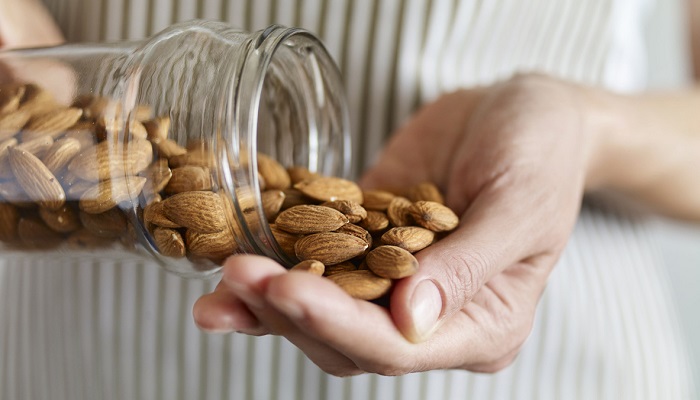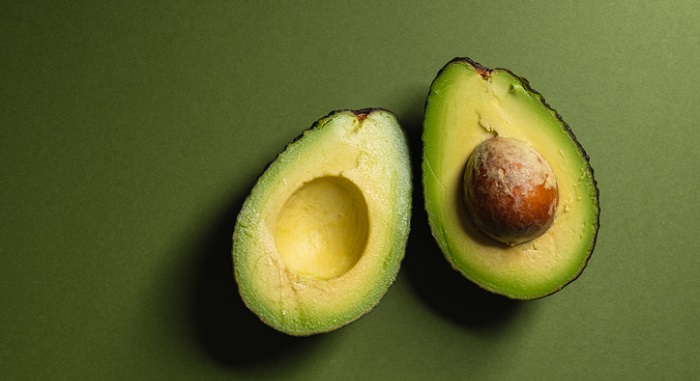The nervous system controls every aspect of your life, from thoughts to digestion to physical movement. And what you eat can have a major impact on just how smoothly your nervous system runs.
Research shows that certain foods may have the power to make or break the health of your nervous system.
This article will look at just how important your nervous system is, plus the best foods for nervous system health and other ways to support this vital system.
The importance of nervous system health
Think of the nervous system as your body’s control center. Your brain and spinal cord make up the bulk of your nervous system, with nerves and ganglia playing central roles.
As already mentioned, the nervous system is vital to basically all aspects of your life. This can be seen by looking at just some of the things your nervous system controls, including:
- Brain development
- Sensations
- Thoughts and emotions
- Learning
- Memory
- Movement, balance, and coordination
- Sleep
- Healing
- Aging
- Breathing
- Body temperature
- Digestion
- Fertility
- Puberty1
This list makes it easy to see that your nervous system is absolutely key to your life and health.
A nervous system that isn’t working properly may lead to various problems that can affect your speech, breathing, digestion, movements, learning, and more.
Nervous system problems may be brought on by genetics, birth defects, damage, or even lifestyle factors.
Clearly, you must do what you can to maintain the health of your nervous system.
Can certain foods help the nervous system?

There is plenty of evidence suggesting that foods can make a significant impact on the health and function of the nervous system.
For example, studies have shown that a diet rich in antioxidants and anti-inflammatory substances decreases the risk of developing neurological problems. Moreover, a diet that regularly consists of all the macronutrients and micronutrients is important for nervous system health. Such diets are high in foods like fruits, vegetables, whole grains, legumes, and nuts and low in ultra-processed foods, added sugar, sodium, and trans-fat.2
Other studies have found that the Mediterranean and MIND diets can enhance neurological health.4 These diets focus on anti-inflammatory foods like fatty fish, olive oil, nuts, legumes, fruits, vegetables, and whole grains.
When looking at the research as a whole, the overarching message is that a well-balanced diet is vital to the health of your nervous system. So much so that nutrient deficiencies may contribute to the development of various nervous system problems.3
Simply put, a healthy diet will go a long way in maintaining the health of your nervous system.
Top foods for nervous system health
Now you know that food impacts your nervous system health. You also know that a well-balanced diet seems to be key. But what foods make up this type of diet?
To answer that, let’s look at the top 10 foods for nervous system health:
1. Lean protein
Proteins found in foods are made up of amino acids, small substances that are imperative to the health of your nervous system.
Your brain and nervous system rely on proteins and amino acids. Without enough protein, cognition may decline more rapidly according to a study from 2022. Specifically, researchers found that long-term consumption of lean protein (beans, legumes, fish, and lean poultry) was linked to subjective improvements in cognitive function later in life.4
Additionally, protein deficiencies are thought to lead to the development of dementia, another nervous system disorder. Proteins help neurons, neurotransmitters, and other parts of the nervous system function normally.5
2. Green leafy vegetables

There are a wide variety of green leafy vegetables. These include spinach, kale, arugula, collard greens, cabbage, and romaine lettuce.
Green leafy vegetables contain nutrients like vitamin K, lutein, beta-carotene, nitrate, folate, and alpha-tocopherol, which have antioxidant and anti-inflammatory properties. Research has shown that eating green leafy vegetables may help slow the cognitive decline that typically occurs with age. This is due to the neuroprotective effects of many of the substances found in green leafy vegetables.6
3. Dark Chocolate
Dark chocolate is a good source of flavonoids, which are phytonutrients with antioxidant activity.
The researchers of one small study on healthy adults were able to correlate dark chocolate consumption with improvements in nervous system signaling. In the study, dark chocolate was shown to increase electrical activity in the brain, both acutely and chronically.7
4. Legumes
Beans, peas, and lentils are legumes. These are high in B vitamins, fiber, plant-based protein, iron, folate, and other nutrients important to your nervous system health.
Due to their fiber and protein content, legumes take longer to digest, giving your brain and nervous system a steady stream of energy. Anti-inflammatory components of legumes are also thought to be beneficial for nervous system health.8
5. Nuts

Like legumes, nuts are rich in protein, fiber, and a long list of vitamins and minerals.
Nuts are also a good source of mono- and polyunsaturated fatty acids, as well as various types of antioxidants. These and other nutrients found in nuts have been linked to decreased levels of inflammation and oxidative stress, two things that can lead to accelerated aging and certain nervous system disorders.9
6. Fatty fish
Fatty fish contains omega-3 fatty acids, specifically eicosapentaenoic acid (EPA) and docosahexaenoic acid (DHA), that are known to have an impact on the health of your brain and nervous system.
EPA and DHA play a major role in the development of a growing fetus’s brain, making them vital nutrients from the very beginning. In fact, fatty fish and omega-3 fatty acids are an important part of a healthy diet throughout the lifecycle due to their positive effect on the nervous system.10
7. Berries
Many studies have linked the consumption of berries to decreased risk of nervous system problems. This may be due to phytonutrients like caffeic acid, anthocyanin, tannin, and quercetin found in berries that have both antioxidant and anti-inflammatory properties.
In one review, berries including strawberries, bilberries, blackcurrants, blackberries, blueberries, and mulberries were found to be neuroprotective. They were also found to reduce or delay aging, which affects cognition.11
8. Avocados

According to a recent survey, vitamins, minerals, and healthy fats found in avocados may improve memory and reduce cognitive decline in older adults.
The survey included almost 3,000 older adults over the age of 60 who provided 24-hour diet recalls. Among participants, researchers were able to correlate higher avocado consumption with better memory and overall cognition compared to those who consumed little to no avocados. The anti-inflammatory properties of avocados may also decrease the risk of various nervous system issues.12
9. Whole grains
Whole grains are found in oats, barley, brown rice, millet, rye, and more. Compared to refined grains, whole grains contain more fiber, B vitamins, phytonutrients, and other vitamins and minerals.
Research has shown that the consumption of whole grains leads to decreased inflammatory markers often associated with disorders of the nervous system. A low intake of whole grains has also been linked to faster cognitive decline.13
10. Olive oil
A staple of the Mediterranean diet, olive oil is rich in monounsaturated fats and antioxidants that help maintain nervous system health.
As some studies have pointed out, the nervous system is especially susceptible to oxidative stress, a key factor in the development of neurodegenerative problems. Olive oil has been found to prevent and even reverse oxidative damage in the nervous system.15
Other ways to support nervous system health
Factors like stress and poor lifestyle choices can lead to your nervous system needing some extra love and care. Sometimes, it’s best to give your nervous system a break or find other ways to support it.
Besides a healthy diet that incorporates the best foods for nervous system health, there are various ways to support your nervous system. By taking steps now to improve the health of your nervous system, you may be able to reduce your risk of nervous system disorders.
Ways to support your brain and nervous system include:
- Getting regular physical activity
- Eating a well-balanced diet
- Educating yourself through books and classes
- Quitting smoking
- Getting plenty of sleep
- Finding tools for self-care
- Taking care of your mental health
- Maintaining social relationships
- Enjoying puzzles, card games, and other brain challenges16
You may also consider talking with a healthcare provider about other ways to support your nervous system health.
 About Brittany Lubeck
About Brittany Lubeck
Brittany Lubeck is a registered dietitian and nutrition writer. She has a Bachelor of Science in Dietetics, a Master of Science in Clinical Nutrition, and began her career as a clinical dietitian. Brittany has always enjoyed research and loves that she can help people learn more about nutrition through her writing.
Sources:
1. What does the nervous system do?” National Institutes of Health. Nichd.nih.gov.
2. Melzer, T.M., L.M Manosso, et al. “In Pursuit of Healthy Aging: Effects of Nutrition on Brain Function.” International Journal of Molecular Sciences 9, no.22 (2021): 5026.
3. Lee, Philip. “Eating for Your Brain: Two Diets that Can Enhance Neurological Health.” Mercy. Mercy.net.
4. Yeh, T.S., C. Yuan, et al. “Long-term dietary protein intake and subjective cognitive decline in US men and women.” The American Journal of Clinical Nutrition 1, no. 115 (2022): 199-210.
5. Sato, H., M. Tsukamoto-Yasui, et al. “Protein Deficiency-Induced Behavioral Abnormalities and Neurotransmitter Loss in Aged Mice Are Ameliorated by Essential Amino Acids.” Frontiers in Nutrition 7 (2020).
6. Morris, M.C., Y. Wang, et al. “Nutrients and bioactives in green leafy vegetables and cognitive decline.” Neurology 3, no. 90 (2018): e214-e222.
7. Santiago-Rodriguez, E., B. Estrada Zaldivar, E. Zaldivar-Uribe. “Effects of Dark Chocolate Intake on Brain Electrical Oscillations in Healthy People.” Foods 11, no. 7 (2018): 187.
8. “Healthy food trends – beans and legumes.” National Institutes of Health. Medlineplus.gov.
9. Gervasi, T., D. Barreca, et al. “Health Benefits Related to Tree Nut Consumption and Their Bioactive Compounds.” International Journal of Molecular Sciences 11, no. 22 (2021): 5960.
10. Dyall, S.C. “Long-chain omega-3 fatty acids and the brain: a review of the independent and shared effects of EPA, DPA and DHA.” Frontiers in Aging Neuroscience no. 7 (2015): 52.
11. Tran, P.H.L, & T.T.D. Tran. “Blueberry Supplementation in Neuronal Health and Protective Technologies for Efficient Delivery of Blueberry Anthocyanins.” Biomolecules 11, no. 1 (2021): 102.
12. Cheng, F.W., N.A. Ford, M.K. Taylor. “US Older Adults That Consume Avocado or Guacamole Have Better Cognition Than Non-consumers: National Health and Nutrition Examination Survey 2011-2014.” Frontiers in Nutrition 8 (2021): 746453.
13. Ozawa, M., M. Shipley, et al. “Dietary pattern, inflammation and cognitive decline: The Whitehall II prospective cohort study.” Clinical Nutrition 2, no. 36 (2017): 506-512.
14. Amel, N., T. Wafa, et al. “Extra virgin olive oil modulates brain docosahexaenoic acid level and oxidative damage caused by 2,4-Dichlorophenoxyacetic acid in rats.” Journal of Food Science and Technology 3, no. 53 (2016): 1454-1464.
15. “10 Ways to Love Your Brain.” Alzheimer’s Association. Alz.org.